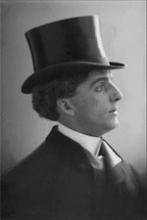Lessig Presentation on America's Broadband Policy
Paul Venezia is one of the few who noted a recent Lessig presentation that discusses broadband policy. Larry Lessig's presentation offers an excellent short history of broadband and telecom history - from the beginning of AT&T to the National Broadband Plan. The video runs an hour, but should be essential viewing for anyone who wants to understand why the U.S. continues to fall behind international peers in broadband. Lessig's answer is that we have lost our independence. Large corporate interests dominate the federal government as well as the state legislatures, resulting in a government that too often bends to their will. Lessig's presentation covers the essential role of government in forcing AT&T to open the phone network (paving the way for fax machines, Sports Illustrated football phones, and eventually dial-up modems). Key takeaway: the owner of a network makes the rules and determines who is allowed to use it and under what circumstances. Among other issues, he offers the most accessible explanation of what happened with the FCC/Comcast court ruling that has (temporarily - we hope) rendered the FCC unable to stop carriers from telling users what sites they can visit or adjusting the speeds to some sites based on the carriers' business model. He notes his disappointment with the National Broadband Plan - where the Obama "reality-based" Administration chose to ignore reality and take the easy road of not challenging powerful incumbent telecom interests. Toward the end, he raises the chilling prospect of the federal government instituting a form of the PATRIOT ACT on the Internet in the future. Watching this reminded me that we believe government has an essential role in building and owning infrastructure but we strongly support Constitutional checks against the government getting too involved in policing content. This is an excellent presentation - particularly for those who are not as familiar with the history of the AT&T, the FCC, Carterphone, and the competition we briefly had among service providers in the days of dial-up.



